Do you have an ant problem? Are ants good for the garden or bad? If you’re not sure, don’t worry – you’re not alone! In this article, we will answer all of your questions about ants and gardening.
We’ll discuss the benefits and drawbacks of having ants in your garden, and provide some tips on how to deal with them. So whether you’re trying to get rid of ants or encourage them in your garden, read on for all the information you need!
Ant General Information
While many people think of ants as pests, they can actually be quite beneficial to your garden.
They also eat harmful insects like aphids, whiteflies, and mealybugs. In fact, some farmers even use ants to control crop pests!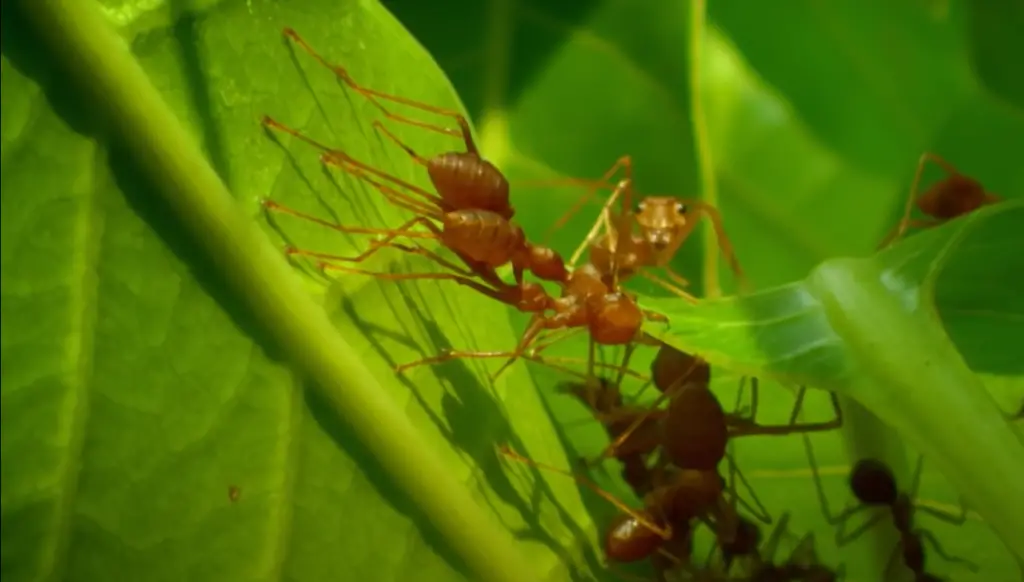
Of course, ants can also be a nuisance. They can build their nests in your plants or garden tools, and they may even bite if they feel threatened. If you have an ant problem that you can’t seem to solve, call a pest control specialist.
In most cases, though, ants are more helpful than harmful. So, the next time you see one in your garden, take a closer look. You might just be surprised at how helpful these little creatures can be. [1]
The Benefits of Ants
Though they are often seen as pests, ants can actually be quite beneficial to have around your garden. Here are some of the ways in which ants can be helpful:
- They help to aerate and turn over the soil as they travel through it, which helps to improve drainage and allows oxygen and other nutrients to reach the roots of plants.
- They also eat many types of harmful insects, including caterpillars, aphids, and grubs.
- Ants’ nests can provide homes for other beneficial insects, like ladybugs and lacewings. [1]
What Ants Indicate
One of the benefits of having ants in your garden is that they can be indicators of the health of your plants. If you see a lot of ants, it could mean that your plants are stressed or unhealthy.
If you don’t see any ants, it could mean that your garden isn’t hospitable to them. Either way, it’s a good idea to take a close look at your plants to see if they need some extra attention.
Another benefit of ants is that they help aerate the soil. This is especially true of red fire ants, which are common in many gardens. Their burrowing habits help loosen compacted soil and improve drainage. This can be a huge help to your plants, especially during wet periods when the soil is more likely to become waterlogged.
Ants can help control garden pests. Some types of ants eat harmful insects, like aphids and caterpillars. This can save you time and effort when it comes to pest control. So, if you see ants in your garden, that’s a good thing!
Ants Aren’t Your Enemy
Yes, ants are pests. But they’re not all bad—some types of ants can actually be beneficial to your garden. In fact, these so-called “beneficial ants” perform a number of important functions in the ecosystem, such as aerating soil, controlling pests, and spreading plant seeds.
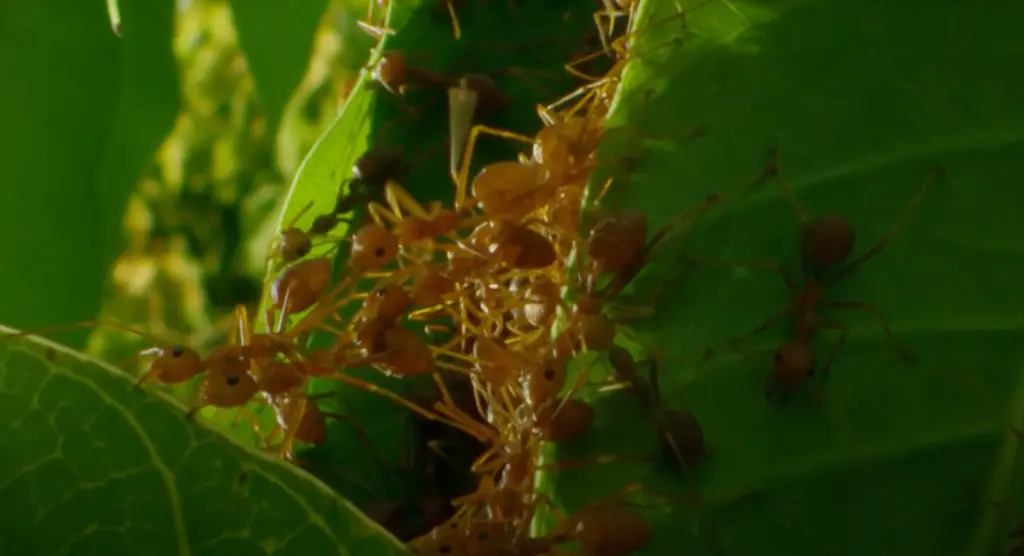
So, what exactly makes an ant good for the garden? Here are a few things to consider:
Aerating Soil
One of the most important things that ants do is help aerate the soil. This means that they make it easier for water and nutrients to get through, which is especially helpful in soils that are compacted or waterlogged.
Controlling Pests
Some types of ants help control garden pests. Predatory ants eat harmful insects like aphids, caterpillars, and grubs. Other ants protect plants from these pests by building their nests near the plants they feed on. The presence of ants deters many pests from feeding on the plants.
Spreading Plant Seeds
Finally, ants can help spread plant seeds. Many species of ants collect and store seeds in their nests. This helps disperse the plants around the garden. This is especially helpful for plants that rely on ants to spread their seeds, as it helps ensure their survival. [2]
Signs That Your Ant Population is Out of Control
One of the most obvious signs that your ant population has gotten out of control is when you see them everywhere. In your kitchen, in your bathroom, in your bedroom, and even in your living room.
Another sign is the damage they’re doing to your home. If you see ants crawling on your walls or floors, it’s a sign that they’re looking for food. And if you see them in your pantry or cupboards, it means they’ve found food. Ants can also cause damage to your plants. If you see ants crawling on your plants, it’s a sign that they’re feeding on them. [3]
Natural ant-control methods
Getting Rid of Aphids
Aphids are small, soft-bodied insects that feed by sucking sap from plants. They can often be found in large numbers on new growth. Aphids can cause stunted plant growth, distorted leaves, and yellowing of foliage. They also produce a sticky substance called honeydew that can attract ants and promote the growth of sooty mould on leaves.
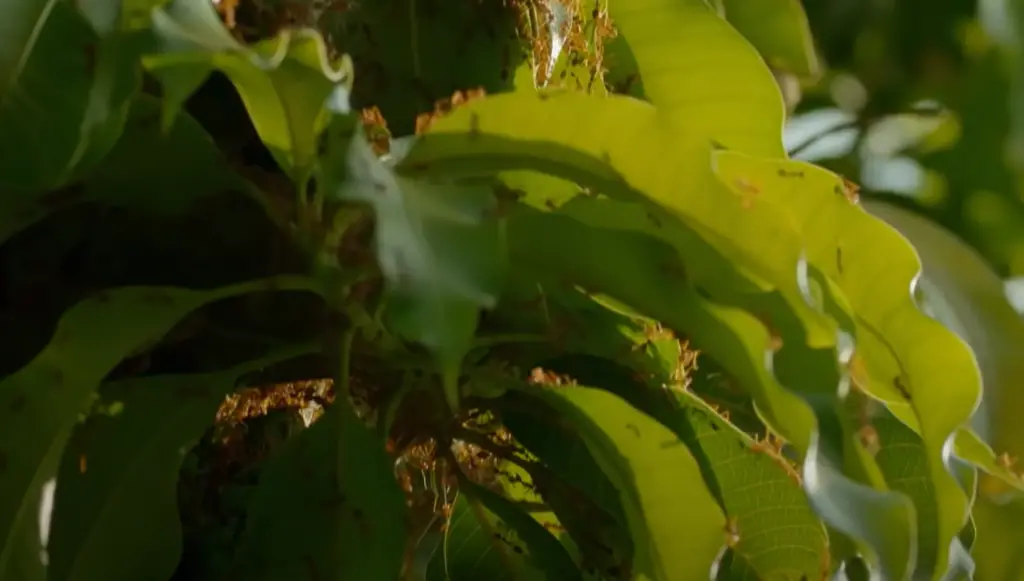
There are several ways to control aphids without using pesticides.
- Blast them off plants with a strong spray of water from the hose.
- Introduce natural predators, such as ladybugs, into the garden.
- You can also try spraying plants with a mixture of water and soap, which will kill the aphids.
If you decide to use pesticides, choose products that are specifically labelled for aphids and follow the directions carefully. Some common ingredients in aphid-control products include neem oil, pyrethrins, and spinosad.
Diatomaceous Earth
It is a type of sedimentary rock that is crumbly and soft. It’s made up of the fossilised remains of algae called diatoms. Diatomaceous earth is used in a variety of ways, including as an abrasive, filter, absorbent, and more. It can also be used in gardens as a way to control pests, like ants.
This powder can be harmful to insects, causing them to dehydrate and die.
When applied to the soil, it will create a barrier that ants will not cross. It’s important to note that diatomaceous earth can also be harmful to pets and humans if inhaled, so it’s important to use it carefully.
If you’re looking for a natural way to control ants in your garden, diatomaceous earth may be a good option. Just be sure to use it safely and follow the instructions on the package.
Zeolite
If you’re looking for a way to improve your garden’s drainage, consider using zeolite. This type of volcanic rock is absorbent, making it ideal for use in gardens with poor drainage. Zeolite can also help to aerate the soil and increase its porosity. This allows roots to better access oxygen and results in a healthier plant.
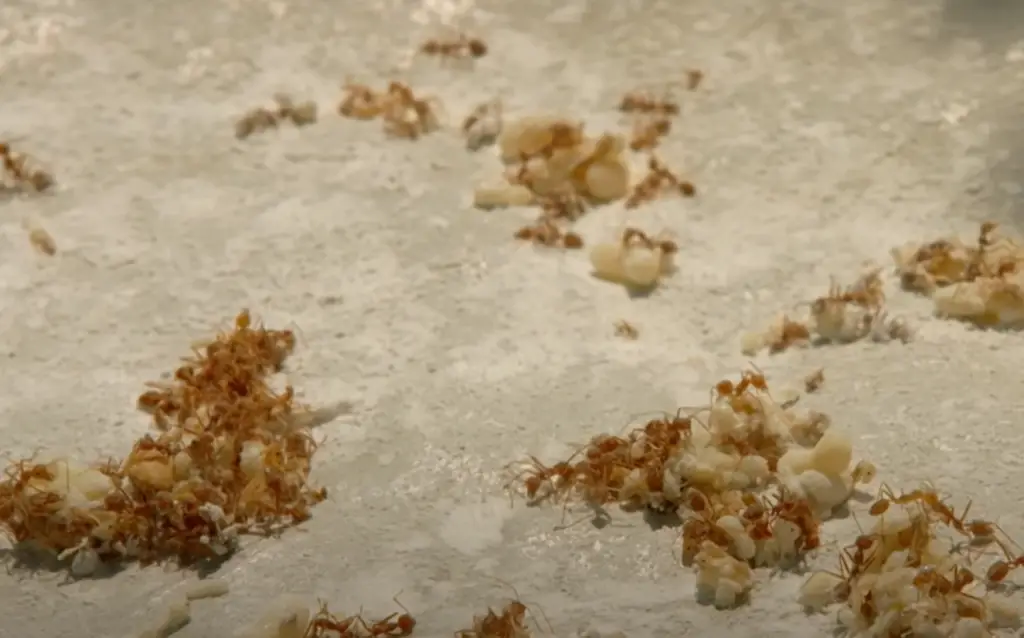
Zeolite is a good choice for improving the fertility of soil. It is rich in nutrients like potassium, calcium, and magnesium. Zeolite can also raise the pH of acidic soils so plants can grow better in them. If your soil is naturally acidic, adding zeolite can be helpful for your garden. [3]
Vinegar
Vinegar is an acetic acid and ants don’t like it. Mix vinegar and water in a 1:3 ratio. Then use a spray bottle to spray it directly on the ants. Wipe them up with a paper towel when they are dead. You can also soak cotton balls in vinegar and place them near entry points, such as doors and windows, to keep ants away from your home.
Another way to get rid of ants is to make a sugar water solution. Mix one part sugar with one part water and put it in a shallow dish. Place the dish where you’ve seen the ants. The ants will be attracted to the sugar but the water will drown them.
If you have ants in your house, there’s probably something attracting them inside. Check for food crumbs and spills and clean them up. Store food in airtight containers and keep counters and floors clean. You can also try using citrus peelings. Ants don’t like the smell of citrus, so place lemon or orange peels near entry points.
Borax
This is a naturally occurring mineral that is mined from the ground.
It has been used for centuries as a cleaning agent and insecticide. When used properly, borax is an effective way to kill ants. In fact, borax is so effective at killing ants that many commercial ant baits contain it as their active ingredient.
To use borax to kill ants, mix equal parts of borax and sugar. The sugar will attract the ants while the borax kills them. You can then put this mixture where you’ve seen the ants in your home and they will take it back to their nest, poisoning the rest of the colony.
If you’re looking for a more natural way to get rid of ants, borax is a great option. Just be sure to use it safely and keep it out of reach of children and pets.
Boiling Water
If you have an ant problem in your garden, one way to get rid of them is to pour boiling water on them. This will kill them right away. Just be careful not to pour the water on any plants or flowers, as this can damage them.
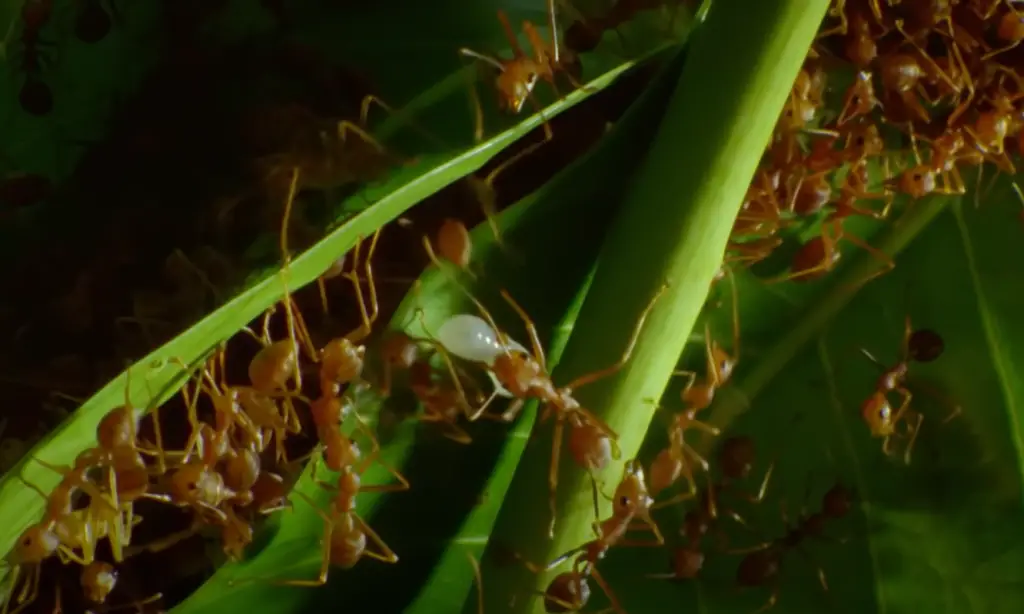
Another way is to use a mixture of equal parts water and vinegar. This can be sprayed directly onto the ants or into their nest. The vinegar will kill the ants and deter them from coming back.
FAQ
Should I Leave Ants In My Garden?
That really depends on the type of ants and what kind of garden you have. Some ants are actually helpful to gardens, while others can be quite destructive. If you’re not sure what kind of ants you have, it’s best to consult with a local expert or exterminator. In general, however, most people prefer to get rid of ants in their gardens.
There are a few different ways to get rid of ants in your garden.
- Use ant baits. These baits attract ants and then kill them when they eat them.
- Use a pesticide specifically designed to kill ants. You can also try making a homemade solution of soapy water, which can be effective at killing ants.
If you have ants in your garden, there are a few different things you can do to get rid of them. In general, most people prefer to use baits or pesticides to kill the ants.
You can also try making a homemade solution of soapy water, which can sometimes be effective. With a little patience and effort, you should be able to get rid of the ants in your garden.
Why Are There So Many Ants in My Garden?
One possible reason for your ant problem could be that your garden is providing a food source for them. Ants are attracted to sweet things, so if you have any fruit or flowers in your garden, they may be interested in these items.
Another possibility is that there is something else in your garden that they are after, such as other insects or grubs. If you have an ant problem in your garden, it is best to try to figure out what is attracting them so that you can take steps to remove the attractant.
Ants might be attracted to your garden because it is a good place for them to build their nests. If you have loose, dry soil, they will be more likely to build their nests there. If you have mulch or other organic matter, that will also be a good spot for them. If you find that ants are building nests in your garden, you can try to remove the nests or use insecticides to get rid of them.
If you are still having trouble getting rid of ants in your garden, you can try using baits or traps. Ant baits are designed to attract ants so that they will take the bait back to their nests and share it with the other ants. This can help to kill a large number of ants at once. You can also try using physical barriers, such as diatomaceous earth, to keep ants out of your garden. However, it is important to be patient and persistent if you want to get rid of ants in your garden.
Are Ants a Threat to My Garden?
No, ants are not a threat to your garden. In fact, they can be quite beneficial! Ants aerate the soil as they travel through it and help to spread around nutrients and water. They also prey on harmful insects like aphids, mealybugs, and whiteflies. So having a few ants around is actually good for your plants!
Are Ants Bad for Growing Vegetables?
It’s complicated to say if ants are harmful to plants. In most cases, ants are helpful because they aerate the soil and eat pests. However, there are some types of ants that can damage plants by tunnelling into their roots or stems. If you’re worried about your plants being damaged by ants, it’s best to speak with a local expert to identify the species in your garden.
While ants are generally not harmful to plants, there are a few exceptions. One example is the fire ant, which is an invasive species in the United States. Fire ants can damage plant roots and stems, and their bites can be painful for humans. If you have fire ants in your garden, it’s best to consult with a local exterminator to get rid of them.
What Eats Ants in the Garden?
There are many different predators of ants in gardens, including lizards, snakes, toads, frogs, birds, and mammals. Some of these predators will only eat certain types of ants while others are less selective. If you have a problem with ants in your garden, attracting some natural predators may be one way to help control the population.
Useful Video: Are Ants Good in the Garden & How Do You control Them?
Conclusion
Ants are an important part of the garden ecosystem, and they play a crucial role in keeping the environment healthy. By planting certain flowers and herbs, you can attract ants to your garden and encourage them to stay.
Not only will this help keep your garden healthy, but it will also bring some added benefits to your yard. Thanks for reading! Have you tried attracting ants to your garden?
References:
- https://www.almanac.com/content/getting-antsy-ants-garden
- https://www.finegardening.com/article/ants-arent-your-enemy
- https://www.tinygardenhabit.com/ants-in-your-garden-the-good-the-bad-and-the-ugly/





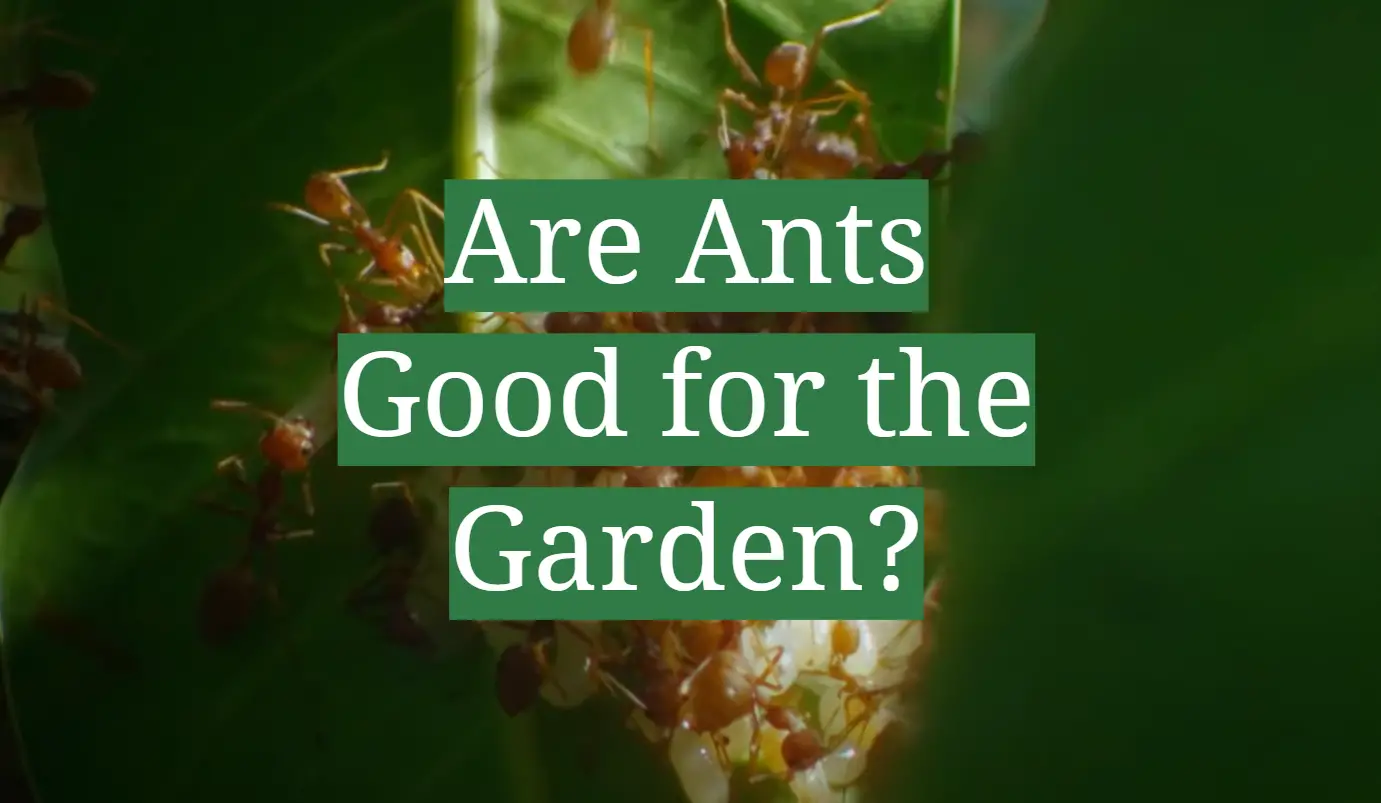
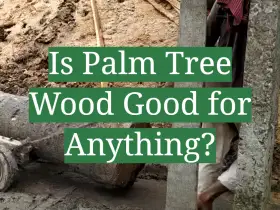
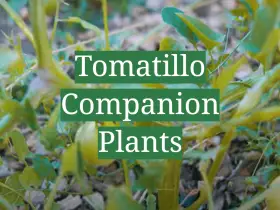
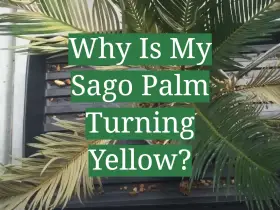
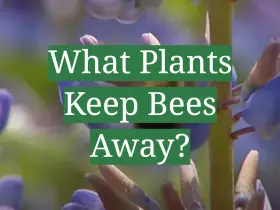
Leave a Reply
View Comments